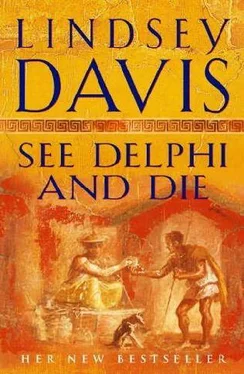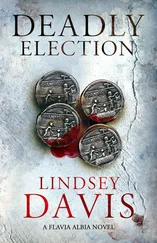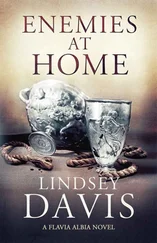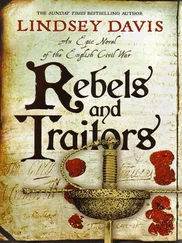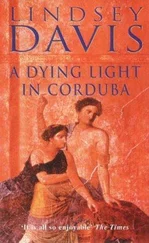Lindsey Davis - See Delphi And Die
Здесь есть возможность читать онлайн «Lindsey Davis - See Delphi And Die» весь текст электронной книги совершенно бесплатно (целиком полную версию без сокращений). В некоторых случаях можно слушать аудио, скачать через торрент в формате fb2 и присутствует краткое содержание. Жанр: Исторический детектив, на английском языке. Описание произведения, (предисловие) а так же отзывы посетителей доступны на портале библиотеки ЛибКат.
- Название:See Delphi And Die
- Автор:
- Жанр:
- Год:неизвестен
- ISBN:нет данных
- Рейтинг книги:4 / 5. Голосов: 1
-
Избранное:Добавить в избранное
- Отзывы:
-
Ваша оценка:
- 80
- 1
- 2
- 3
- 4
- 5
See Delphi And Die: краткое содержание, описание и аннотация
Предлагаем к чтению аннотацию, описание, краткое содержание или предисловие (зависит от того, что написал сам автор книги «See Delphi And Die»). Если вы не нашли необходимую информацию о книге — напишите в комментариях, мы постараемся отыскать её.
See Delphi And Die — читать онлайн бесплатно полную книгу (весь текст) целиком
Ниже представлен текст книги, разбитый по страницам. Система сохранения места последней прочитанной страницы, позволяет с удобством читать онлайн бесплатно книгу «See Delphi And Die», без необходимости каждый раз заново искать на чём Вы остановились. Поставьте закладку, и сможете в любой момент перейти на страницу, на которой закончили чтение.
Интервал:
Закладка:
Well, that's the ideal. Sorting out accommodation falls to the young quaestor; he is quartered at the residence, so he has never slept at any of the run-down lodgings to which he sends people. He only knows of them because their fawning landlords have given him presents, probably something that comes in an amphora; he's so inexperienced he can't even tell if the free wine is any good. The quaestor is just twenty-five, in his first post, and has only ever been travelling before with his father, a bossy senator, who organised everything. He knows nothing about booking rooms.
Our guesthouse was called the Elephant. It could have been worse. It could have been much better. It had more rooms than the Camel up the street and, according to the manager, fewer mosquitoes than the Bay Mare. Nobody was leasing out cubicles to floozies on an hourly basis, but that was mainly because most of the rooms had desultory builders renovating them. Beds were stacked in the courtyard, so its fountain was turned off and breakfast had to be taken at the Bay Mare, where we interlopers from the Elephant were served last, after the honey had run out. At our rickety hostel, a pall of dust hung everywhere. Gaius had already fallen over a pile of tiles and gashed his leg. Luckily he liked looking scarred and bloodstained. A huge extension with premier grade rooms was being added at the back, but this was still unfinished. I could have accepted rooms that had no doors, but I felt that we needed a roof.
The afternoon sun was still pleasant. The builders had gone home, as builders do. We knew from experience they would return around midnight, to deliver heavy materials while the streets were quiet.
Helena and I brushed dust from a stone bench and sat down gingerly. Nux was asleep in a patch of sunlight, a relaxed bundle of mix-and-match fur colours, curled up so tightly I could not tell which end was her head. Albia had perched on a plasterer's trestle, to watch Glaucus doing weight training. Apart from one of the smallest loincloths I had ever seen, he was naked. Albia gestured to him and exclaimed, 'The beautiful boy!' This was a phrase she had picked up from the pederasts at Olympia, who had it painted on vases they gave to young lovers. How pleasing to see travel had had an educational effect. And how nerve-racking, the way Albia gazed at him…
Glaucus ignored the compliment. Soon he stopped training and sat hunched against a pile of dismantled shutters. When a big strong man becomes unhappy, it is disconcerting.
'What's up, champion?' I was afraid Albia's attentions were too much for him. Teenage girls always hassle shy young men (well, the girls I had known on the Aventine hassled me) and Albia had not forgotten she grew up in Britain, where determined red-haired warrior queens were apt to seduce handsome spear-carriers the minute their husbands glanced away. It was not that, however. (Well, not yet.)
'Falco, I am worried about what I did to Milo,' Glaucus confessed, frowning.
'Contact sports are always a risk; your father must have told you. Spectators are hoping for blood and death.' My reassurance overlooked the fact that throwing the discus is not supposed to be a contact sport.
'I had never hurt anyone before, Falco.'
Helena broke in. 'Glaucus, don't be concerned about this. We suspect Milo of Dodona was drugged and suffocated later – to silence him.'
'In case he said something unwelcome?'
'At this stage we don't know,' I said. 'But you merely chipped him with the disk. He should have been up and grumbling in a few hours. It's good to have a conscience, lad, but don't waste it.'
Glaucus evaluated what I said. 'Have you ever killed a man in this work of yours, Falco? My father gives the impression that you might have done.'
'What we are doing here isn't dangerous. Helena and I just met the people involved – and they seem as meek as lambs.'
Glaucus gave me a long look. 'Never mind the people involved! I was wondering about you,' he said.
I could not be offended; sometimes I wondered about myself.
Maybe it was late. Maybe we had indulged too much at lunchtime. I too felt introspective. Certainly Helena and I had just spent an afternoon talking to people I would normally avoid. I could never have endured long weeks or months of travel with a Seven Sights group. Perhaps one or more of them felt the same way. Perhaps they were murdering each other.
I reflected some more on what Helvia and the two men had said about Turcianus Opimus. The more they had assured me his dying had been inevitable, the more I wondered. Ostensibly, it was ridiculous to think that a man who had a severe illness had met an unnatural death. Without going to Epidaurus there was no way I could check, however. Even if I did go, the medical staff who had pronounced him dead would cite his existing disease. Doctors have to look as if they know what they are doing – even though anyone who has ever been ill soon learns the value of that. At Epidaurus I would be dealing with one more hostile Greek temple, where the attendants only wanted to preserve their good name.
Suppose he was murdered. What would anyone gain by killing an invalid? Only if Opimus had possessed incriminating evidence would there be a motive. Nobody had suggested Opimus ever claimed to have such information. But if he had known something, I could never ask him now, so the killer was safe.
I thought about the others. Was anyone I had met so far a likely killer? The belligerent, foolish Sertorius, the misfit Volcasius, Marinus limping with his dog bite, Indus looking haunted? None of them had the air of a sexual predator – and they were all lean-bodied men, who lacked the brute strength of whoever had beaten Valeria with the jump weight.
Cleonymus and Amaranthus were both sturdy. Still, both had women with them – not that marriage or its equivalent ruled out becoming a frenetic killer. I had known murderers who battered female victims, yet who had devoted wives. Some of those wives endured a lifetime of domestic hell but even so, when an arrest was made, they refused to believe the facts and would not testify against their mad husbands. Surely neither Cleonyma nor Minucia fell into that category. They were social, intelligent women who would spot a guilty man if they shared their bed with him. However, I knew if it really had happened, even those hard women might provide cover-ups.
Well, maybe not Minucia, whose strong sense of justice had sent her marching to the quaestor. It was unlikely she would have risked incriminating her own lover – and I rather thought Cleonyma would have stopped Minucia if the culprit had been her husband.
I toyed with the idea that Turcianus Opimus was the killer, and that guilt made his health deteriorate. But he must have been far too unwell to make advances to Valeria, let alone overcome a fit young woman if she rejected him.
If Valeria's killer came from this travelling group, that left either Phineus the guide – who had behaved suspiciously before, flitting suddenly back to Rome when Marcella Caesia disappeared – or, as Aquillius had believed at the time, the husband, Statianus. Having failed to meet either so far, I reserved judgement.
An alternative was that Valeria had been killed by an outsider, a stranger. It made it more likely that she and Marcella Caesia had met similar fates, three years apart but at the hands of the same man. My chances of identifying him were nil. No records were ever kept of who came and went to Olympia. With no sightings of Caesia going up the Hill of Cronus or of Valeria with her brutal companion, I was stuck. The only possibility I knew was Milo of Dodona; yet his behaviour the day after Valeria died convinced hard-headed witnesses he had no idea the crime had occurred. Anyway, he used the wrong colour athletic dust. He could have changed his usual colour, but that argued premeditation. The kind of frenzied attack Valeria suffered tends to be unplanned.
Читать дальшеИнтервал:
Закладка:
Похожие книги на «See Delphi And Die»
Представляем Вашему вниманию похожие книги на «See Delphi And Die» списком для выбора. Мы отобрали схожую по названию и смыслу литературу в надежде предоставить читателям больше вариантов отыскать новые, интересные, ещё непрочитанные произведения.
Обсуждение, отзывы о книге «See Delphi And Die» и просто собственные мнения читателей. Оставьте ваши комментарии, напишите, что Вы думаете о произведении, его смысле или главных героях. Укажите что конкретно понравилось, а что нет, и почему Вы так считаете.
